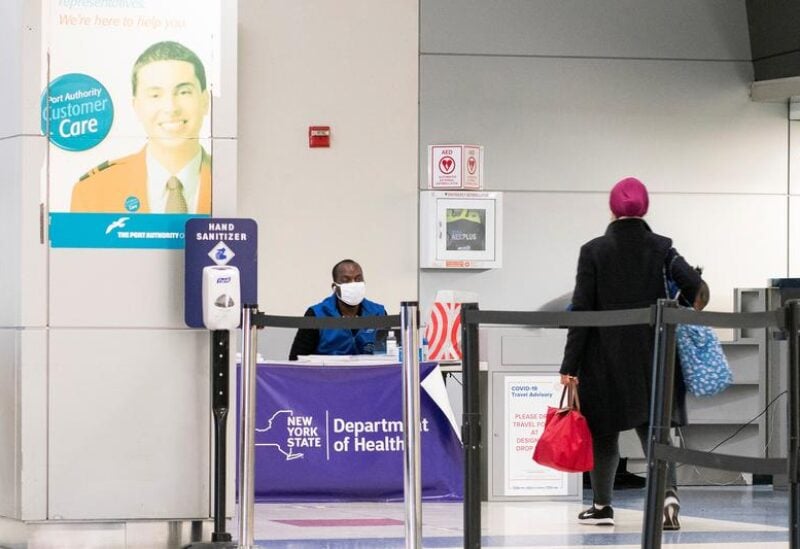
FILE PHOTO: Passengers arrive on a flight from London amid new restrictions to prevent the spread of coronavirus disease (COVID-19) at JFK International Airport in New York City, U.S., December 21, 2020.
Travel spending by U.S. citizens sank 42%, or $492 billion, in 2020, according to a report by an industry group, amid social, travel and business restrictions aimed to curb the spread of the COVID-19 pandemic.
The U.S. Travel Association noted that the industry shed 5.6 million direct and indirect jobs last year, and the decline in travel decreased total economic output to $1.5 trillion, from 2019’s $2.6 trillion. U.S. tax revenue collected from travel plummeted by $57 billion in 2020.
“While the gradual progress of inoculations has provided hope that a turnaround may be on the horizon, it remains unclear when travel demand will be able to fully rebound on its own,” said U.S. Travel Association President and CEO Roger Dow.
As millions of Americans get inoculated and travel destinations start to reopen, the industry is optimistic that demand will return this spring. Disney announced on Wednesday that its California theme parks are due to reopen April 30.
Last year, U.S. passenger airline traffic sank 60.1% to the lowest since 1984, while Americans took far fewer road trips as millions stayed home instead of commuting.
In total, there were 368 million air passengers in 2020, down from 922.6 million in 2019. U.S. driving fell by 430.2 billion miles, or 13%, to 2.83 trillion total miles in 2020, its lowest level since 2001.
Business and international travel were especially hard hit and have been slower to recover. The United States still imposes restrictions that bar the entry of almost all non-American citizens who have recently been in Brazil, South Africa and much of Europe.
The Centers for Disease Control and Prevention still recommends Americans avoid all nonessential travel, even for those who received the COVID-19 vaccine. However, more U.S. citizens are resuming travel.
Last week, the Transportation Security Administration said it screened 1.357 million U.S. airport passengers on Friday, the highest number screened since March 15, 2020 in the early weeks of the pandemic, as air travel begins to rebound.